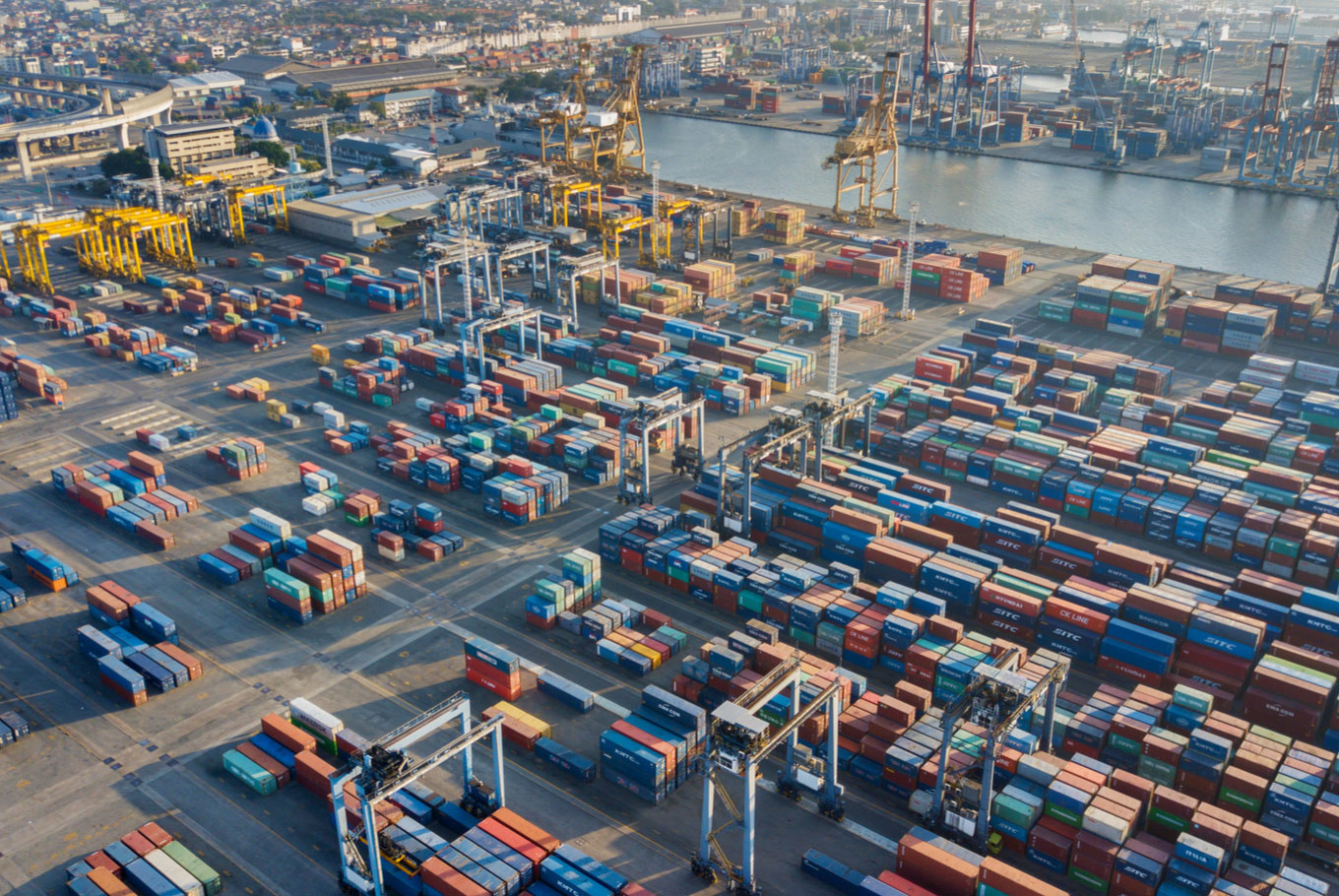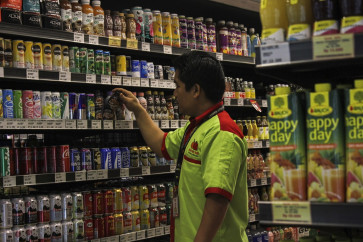Indonesia still wary as US-China trade war truce called
“We have to take advantage as well as anticipate the downside risk after the 90 days of the trade war ceasefire,” Sri Mulyani said.
Change text size
Gift Premium Articles
to Anyone
 Industrial port of Tanjung Priok with stacks of containers. (Shutterstock.com/Creativa Images)
Industrial port of Tanjung Priok with stacks of containers. (Shutterstock.com/Creativa Images)

Indonesia may still feel the impact of the trade war between the United States and China, even though tensions between the two economic giants have cooled down following a meeting between US President Donald Trump and China’s Xi Jinping on the sidelines of a G20 leaders summit at the weekend.
Finance Minister Sri Mulyani Indrawati, who just returned from the G20 summit in Buenos Aires, Argentina, said the impacts from global uncertainties were still looming.
“We have to take advantage as well as anticipate the downside risk after the 90 days of the trade war ceasefire,” Sri Mulyani said during the CEO Networking 2018 discussion forum in Jakarta on Monday.
The Finance Ministry and Bank Indonesia (BI) have prepared a range of policy mixes and relaxations in order to make the country’s economy more resilient next year.
Such policies are being established to anticipate the return of this year’s economic volatility, which occurred as a result of heated trade tensions and a strengthening US economy that shook emerging market currencies as well as their economies.
On the sidelines of the G20 leaders meeting, Trump met Xi for a highly anticipated dinner on Saturday and both agreed to suspend imposing any new tariffs on each other’s goods for 90 days.
In the meantime, both countries are set to have more talks to resolve trade issues.
White House press secretary Sarah Huckabee Sanders said, however, that if there was no progress on structural reform after the trade war pause was over, the US would raise the tariff on US$200 billion worth of Chinese goods entering the country from 10 to 25 percent, according to Bloomberg.
US demands include China ending a host of trade barriers, intellectual property theft and other actions that the US says make fair trade impossible.
Aside from the uncertain trade war truce, other external uncertainties that come from the US and Europe monetary normalization could potentially hurt Indonesia’s economy.
BI governor Perry Warjiyo said he and the board of governors were bracing for a fourth increase in the Federal Reserve’s benchmark rate, the Fed Fund Rate, this month and another three hikes next year.
“The European Central Bank is also expected to start its monetary normalization later in 2019 or early 2020 as part of the ending of the quantitative easing era,” Perry said.
As part of its effort to tackle these threats to Indonesia’s economy next year, Sri Mulyani said, the ministry planned to keep domestic demand resilient by maintaining the 2019 state budget deficit at 1.84 percent of gross domestic product (GDP) and maximizing its total budget of Rp 2.4 quadrillion ($168.48 billion) for government spending, which is expected to provide a necessary boost the economy next year.
The government, she said, was also actively using its tax policy to give incentives to businesses in order to drive investment demand.
The government recently increased the number of business units that are eligible to apply for the tax holiday scheme to 169, from 153 units previously. It also lowered the minimum investment amount required to get a tax holiday to Rp 100 billion.
Perry said the central bank was also preparing a number of policies to stabilize the demand side of the economy, particularly in investment and consumer spending.
On the investment side, he said, BI was making sure that the financial sector, such as banks and the capital market, had enough liquidity to supply businesses with the money they needed to expand.
It was also deepening the country’s financial market by developing domestic non-deliverable forward (DNDF) transactions and swap agreements with several countries, such as Singapore and China, to ease external pressure on the rupiah, he said.
On the consumer spending side, he said, BI would continue to relax housing down-payments through its loan-to-value policy to boost the property sector so that more people could afford to buy a house.
Chief economist at Bank Central Asia (BCA) David Sumual told The Jakarta Post that Indonesia should attract more foreign investment into the country to help fix the current account deficit (CAD) problem, which has widened to $8.8 billion, 3.37 percent of GDP in the third quarter.
“As our CAD narrows, our economy will become stronger to face the US and Europe monetary normalization next year,” he said.
This article was originally published in The Jakarta Post's print edition on Dec. 4, 2018, with the title "Indonesia still wary as trade war truce called".










